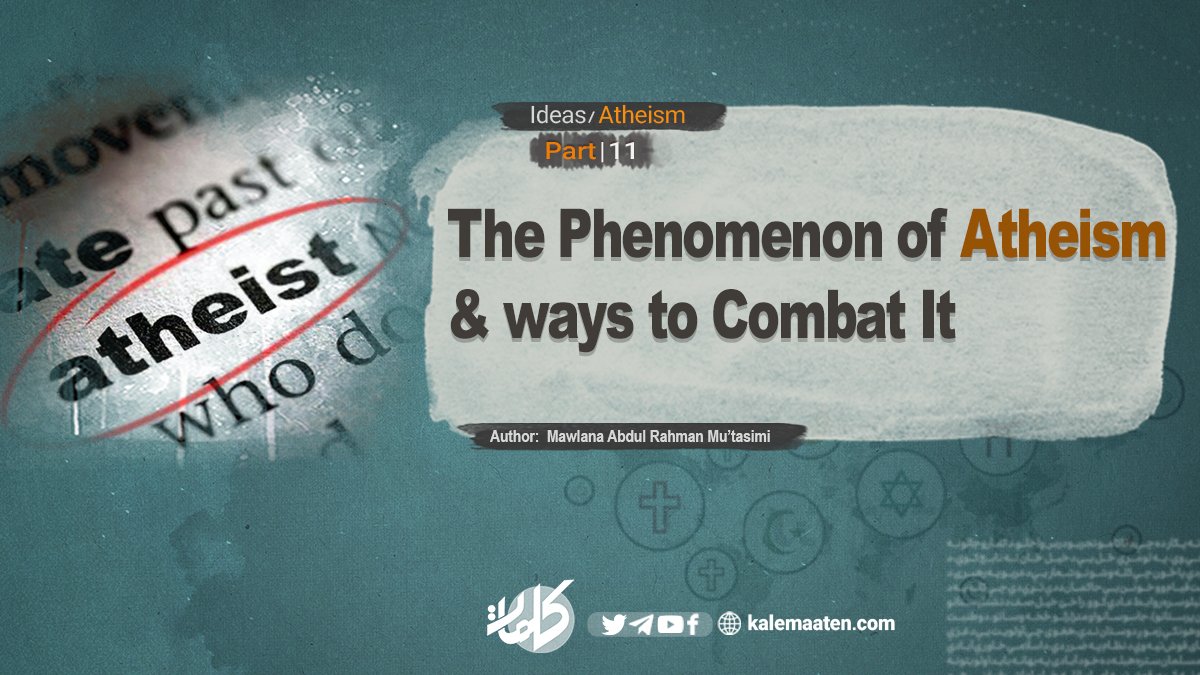
Author: Mawlana Abdul Rahman Mu'tasimi
The Phenomenon of Atheism and Ways to Combat It (Part 11)
Second: Educational Factors and Psychological Issues Due to Family Disruption
In 1999, Professor Paul Vitz, an American psychologist, published a book titled “Psychology of Atheism: Faith Without a Father.” Since its publication, psychologists have become increasingly aware of the role of inherent psychological problems in the acceptance of atheism. Vitz was, in fact, aware of a reality in which he himself had lived, and this did not please contemporary proponents of atheism. They reacted negatively to his book and the research written in its margins, viewing its publication as a threat to the ivory towers where most deniers of a creator, enemies of religions, and opponents of human nature reside today.
What is particularly concerning for atheists regarding Paul Vitz’s warning about the psychological issues involved in accepting atheism is that field studies and biographies of prominent atheists from the era of the European Enlightenment confirm his perspective.
Professor Paul Vitz did not begin to explore the deep, century-long relationship between atheism and psychological issues in isolation. He is a man who has experienced life in darkness, which provided him with the confidence and courage to engage in this debate. He summarized his reflections on atheism and its causes as follows: “Based on my own experience, it became clear to me that the reasons that led me to become an atheist and irreligious between the ages of 18 and 38 were superficial, illogical, and far from pure thought and ethics. I believe that the same factors are prevalent among intellectuals, especially sociologists.” Are these truly the reasons that have driven other Western atheist philosophers down this path?
The reality is that studies of the conditions and lives of atheists indicate that psychological problems stemming from family dysfunction and inadequate upbringing have been major contributors to atheism. Many of these atheists experienced a lack of fatherly love, affection, and guidance, or their fathers were corrupt, oppressive, and atheistic, bearing the blame for their upbringing. Alternatively, they might have been deprived of the nurturing and love of a caring mother, without finding a suitable substitute for either parent.
In 2007, Benjamin Halami, a Jewish psychologist, published a significant study titled “The Psychological Type of the Atheist,” conducted among the members of the “American Federation for Advanced Atheism.” This study revealed that half of the young people who denied the existence of Allah (SWT) before the age of twenty did so due to psychological issues related to parental loss, childhood trauma, or family dysfunction. Many researchers believe that what atheists present as cognitive (objective and logical) reasons for their atheism is, in most cases, merely a façade behind which psychological, personal, and social factors are hidden; this belief is based on scientific data from several similar studies.
Numerous writers, researchers, and even some well-known atheists, such as Freud, regard the role of the father and family upbringing as significant factors in the emergence and evolution of atheism. For example, Freud states, “Young people lose their faith as soon as the authority of the father is undermined.”
All of these points support the theory of Professor Paul C. Vitz, a psychology professor at New York University, under the title “The Absent or Ineffective Father.” This theory, based on experience and logical reasoning, suggests that those who have lost their fathers due to addiction, abandonment, or rejection not only struggle to grasp the concept of God and resist accepting faith, but they often seek to mock and harass believers. Of course, there are exceptions for those who have found a suitable substitute for their absent or ineffective father; that is, after losing their father, someone else has effectively taken on that role in their lives.
Continues…



